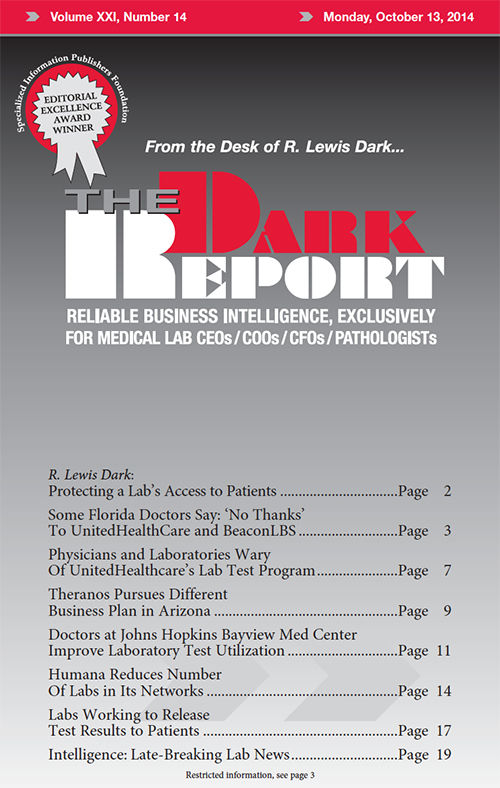CEO SUMMARY: Since its big public debut in late 2013, Theranos has been the subject of keen interest and much skepticism among pathologists and clinical laboratory professionals. Theranos is expanding its presence in Phoenix, Arizona. However, as it does, it looks more like a conventional clinical laboratory—with all the associated costs—than a disruptive lab testing …
Theranos Pursues Different Business Plan in Arizona Read More »
To access this post, you must purchase The Dark Report.


